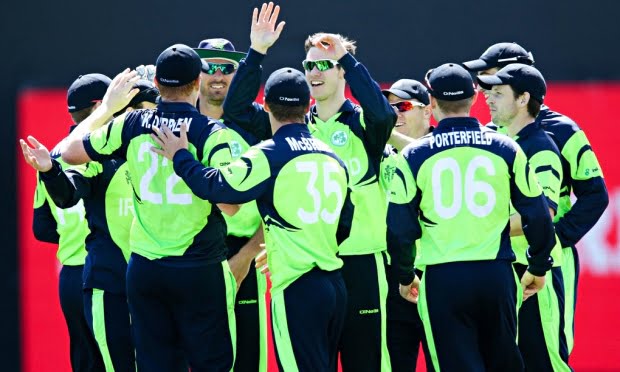Last month, as The Guardian reports it, a recording of Italian Serie A team Lazio’s owner went viral which had him arm-twisting the director of a lower league team to forego participation in the league owing to the low revenues his club is likely to bring. Caught in the act however, he remained unrepentant and all the more persuasive in the face of criticism saying that no one will pay to see a team no one knows about. Of course, like other symbols of Italian arrogance, its football too is slowly going down the drain, much unlike its European counterparts but the sad irony remains that slowly, sports are tasked with being popular by contracting and not, as knowledge dictates, by expansion.
As the 2015 Cricket World Cup limps to the half-way mark, the voices of criticism against its overtly stretched schedule only grow stronger. Most of this criticism targets the participation of associate nations such as Ireland, Afghanistan and Scotland, a fact many say has softened the competitiveness of cricket’s premier tournament. Which is why, the ICC, never to let go off a money-making opportunity have been seriously considering making the 2019 World Cup a ten-team affair, a competition where the eight test-playing nations will automatically qualify plus only two associate nations.
The rationale behind such a proposal is that associate nations won’t be able to pose any challenge to the Full member nations, an assumption which would virtually guarantee the latter’s passage into the next World Cup. However, if the current World Cup is to be seen, associate nations have been nothing if not competitive and spirited. The best games of this edition have been between associates such as the ones between Ireland v. Zimbabwe and Scotland v. Afghanistan, games which went down to the wire. Even against full member nations, the Associates have been fierce, as has been exhibited by Afghanistan almost upsetting Sri Lanka, Scotland testing New Zealand and most famously, Ireland whipping West Indies to victory.
And today as it stands, one of these associates, Ireland, enjoys a genuinely convincing chance to make it to the quarter-finals, over the more erratic teams of Pakistan and West Indies. In fact, Ireland’s progress in World Cups has been decidedly marked by upset wins over Pakistan, England and West Indies, over the years. This should only make it harder for the ICC to impede a team that collectively represents the spirit and aspirations of all associate nations at large.
On the other hand, matches between full member nations have been decidedly one-sided, and some, even flat-out boring, with the match between Australia and New Zealand being the only great exception.

Another probable reason behind such proposal is purely a monetary one; that a sport like cricket must succeed commercially, to find a market in countries where cricket is not all that popular. Putting aside the idealism which goes on to say that commercial interests must not be allowed to dictate sports, it must be noted that even in monetary terms, the ICC’s proposal is on shaky ground. As noted by Russell Degnan in his column last week, the proposal for the 2019 World Cup is scheduled such so as to include a couple of rest days between matches. This means, the very purpose of these rest days is either to let ‘competitive’ teams prepare for their match-ups, or to keep a reserve day in case one gets washed out. In purely commercial sense, that doesn’t make sense because all it does is rob the ICC of the revenue generated by the broadcast rights for those days. Considering the present edition, the same days have been used as ‘fillers,’ as days when Associate nations can compete among themselves. Now, the fact is true that none of the associates have a market big enough to command a feasible broadcast, but by foregoing the participation of such nations, the ICC is letting go of the revenue, small as it may be, which would have been generated by such broadcast.
There is also the matter that the tournament must be drafted so as to ensure the passage of the sub-continental giants into the next round, a proposition that first came forwards after India and Pakistan’s exit in 2007. Now, it may perhaps be true that Asian teams with such a large viewer base generate a large chunk of the revenue but by catering to this large, albeit static fan base of support, the ICC’s goals are decidedly short-term, whereas they have the opportunity to tap new markets and viewerships by expanding participation.
The World Cup may be a fight among the best of the world, but it must also be a story of heroes and underdogs, where every team has an equal chance of participating and winning. Associate participation must remain a part of Cricket’s premier tournament. Reducing the number of associate teams in the tournament will only make the game more elite than it already is. The fact that the ICC has failed to coordinate with the IOC with regard to the sport’s inclusion in the Olympics and the refusal of sub-continental giants to participate in showcases which do have Cricket, such as the Asian games means that the options and avenues for the sport to expand its popularity have already been reduced significantly. Cricket’s existence as a global sport can only be further extended if participation and interest is made equally global.
The ICC has always used the argument of competitiveness as a reason behind the lagging behind of associate nations in cricket. However, the same can only be improved by experience gained by playing cricketing nations that are better than them and not just ten matches a year against other associate teams. In football for instance, International friendlies and qualification rounds at both the International and club level ensure that even the low-rung teams get all the match practice they can, even against superior teams.
A healthy, ‘competitive’ sports team, like a good team has just the right balance between familiarity and novelty, between the established and the newbies, between safety and risk. As writer Ed Smith says, the best teams contrary to popular perception are not stable but are in fact, never static. A marquee tournament like the World Cup must work just like that, not only like a showcase for the very best, but also as a channel of aspirations for the associate nations. Petty interests cannot be allowed to ransom the prestige of the game. The associates may not be as good as the rest in cricket, but there is no reason to expect that they can’t be, one day. The ICC and the cricket fraternity must not allow the associates to disappear into the wind by neglect, such as the case of Kenya (An associate once, semi-finalist in 2003). Instead, they must be given all the encouragement they need by giving them year-round match practice and a chance at eternal glory for that cup every four years. And if all persuasion fails well, one must never forget that India too was one of the associates once. Where would we be if we were not allowed to play in 1983?
-By Jibin





































